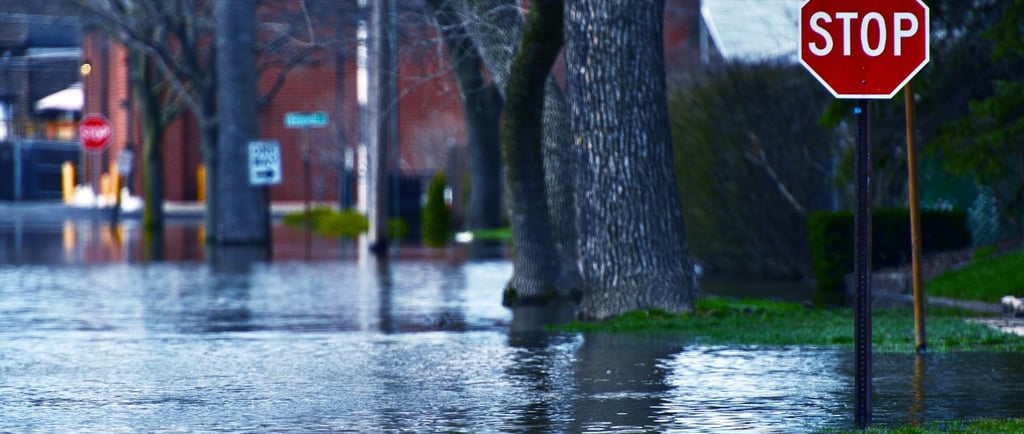Flooding: From a Home Inspector Perspective
As a home inspector, I've seen firsthand the devastating effects that flooding can have on homes, especially in the basement. Flooding not only damages property but also poses serious health and safety risks. Today we are going to share some tips of how to keep your home safe during a flood, and tips to keep you and your family safe at the same time.


Spring is right around the corner here in Manitoba; however, we just saw a huge dump of snow. This huge dump of snow has the potential to cause flooding come spring if it gets warm too quickly.
As a home inspector, I've seen firsthand the devastating effects that flooding can have on homes, especially in the basement. Flooding not only damages property but also poses serious health and safety risks. Today we are going to share some tips of how to keep your home safe during a flood, and tips to keep you and your family safe at the same time.
What to do to prevent flooding and combat damages to property:
Maintain Gutters and Downspouts. Ensure
and that there is no leaves or seeds blocking the way for water to flow.
Install a Sump Pump or test your sump pump to ensure it is working before it’s too late. A sump pump helps to remove water that accumulates around the foundation and water table. The pump can prevent your basement from flooding.
Seal Cracks and Gaps: Seal any cracks or gaps in your basement walls or foundation to prevent water from seeping in during heavy rainfall.
Grade (Slope) the Soil Away from the Foundation: Ensure that the ground around your home slopes away from the foundation to prevent water from pooling around it.
Install Basement Window Well Covers. If you have basement windows, especially if they tend to leak, you can install covers over the wells to prevent water from coming in.
Elevate Belongings: Raise appliances like washers, dryers, and water heaters off the floor to prevent damage in case of flooding. Raise things that are of sentimental value far above ground, consider taking these items up to the main floor.
Obviously, your home is important to maintain, however, make sure you are always protecting number one first; you and your family.
How to stay safe in a flood:
Stay Informed. Keep an eye on weather forecasts and flood warnings in your area. Keep your home quiet enough that you can hear warnings if the area is being evacuated. Be prepared to leave at a moment’s notice, don’t ignore evacuation recommendations.
Create an Emergency Plan. Plan an evacuation route and designate a meeting point in case you and your family get separated. Make sure to include shutting off utilities if you can, this will keep your home safer in case of an emergency.
Prepare an Emergency Kit. Include essentials
that your downspouts are clear of debris to allow proper drainage away from your home’s foundation. Make sure that your gutters have been cleaned
like water, non-perishable food, medications, flashlights, batteries, and important documents in your kit. It is a good idea
to always have an emergency kit on-hand, but if you don’t have one, its not to too late to make one when you hear a flood is coming.
Avoid Floodwaters Never walk, swim, or drive through floodwaters. There is a high chance that the water may have electric current from downed hydro poles. The water can also contain contaminants and other debris.
By following these tips, you can significantly reduce your risk of basement flooding and keep your family safe in the event of a flood. Remember, a little preparation can go a long way in protecting your home and your loved ones.
For further information on flood prevention and safety measures, consult your local municipality or disaster preparedness organizations.